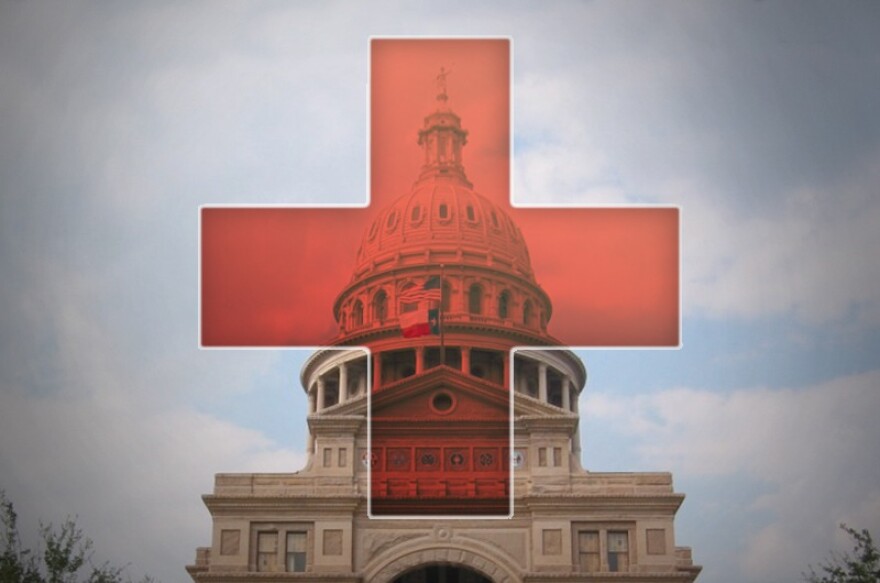Now you may have heard about the current troubles the Cancer Prevention and Research Institute of Texas is going through. Lead scientists have quit over what they claim were inadequate reviews of grant recipients.
Those claims were validated when it was discovered two grants totaling $29 million were issued without scientific review. So the Texas Legislature is currently working on measures aimed at fixing those problems permanently.
But that’s the news now. Let’s take a trip back in time to where it all began: Back to the creation of CPRIT. Back to the 2007 State of the State speech by Gov. Rick Perry.
“You know, I don’t know when the day will come that we find a cure for cancer," Gov. Perry said during his speech in the Texas House. "But I do know it is my dream to accelerate that day, its arrival, with a multi-billion dollar cancer initiate that can save lives and provide millions renewed hope.”
It was supposed to be one of the crown jewels of the Rick Perry administration: the creation of a program that would not only give Texas a boost in bringing big time research projects to the state, but could also make the world a better place.
What’s not to like? It even had the backing of the state’s then-favorite son and cancer survivor, Lance Armstrong.
“The disease costs our state $30 billion a year in direct and indirect cost,” Armstrong said. “That’s a huge number. So, you have to compare, not only the cost of the proposition, but also the other indirect and direct cost the disease takes, the toll it takes on the state.”
Most lawmakers fell over themselves to co-sponsor the legislation. There was one short debate about whether to sell bonds to raise the $3 billion, as the Legislature eventually approved, or pay $300 million a year out of general revenue for 10 years. But the legislation sailed out of the Capitol and on to the constitutional ballot that November.
That’s when some people stopped being as supportive and started asking harder questions. Back in 2007, KUT talked with a couple of groups that either opposed CPRIT’s creation or at the very least were skeptical of its effects on cancer research.
Richard Miller was one interview. He was a cancer expert at Stanford University and had developed several cancer drugs.
“What does $3 billion dollars get you? It’s hard to say. One good idea could get you a lot. No good ideas will get you nowhere," Miller said in 2007. “Even after you’ve identified a potentially active cancer agent it takes more than a decade. The cost of developing a new drug from discovery to getting approval is over a billion dollars.”
Then there were those worried CPRIT would spend the money based on politics and not on science – people like Ron Trowbridge, who worked with the conservative group Empower Texans against CPRIT.
“First of all, I want to know in advance what this money is going to go for,” Trowbridge said in a 2007 interview with KUT. “The government will say, ‘We don’t know. That will be up to the Cancer Prevention and Research Institute.’ That’s not good enough.”
Texans voted to create CPRIT with 61 percent of the vote. A nice margin, but not the slam dunk it had been in the legislature.
Now here we are in 2013, trying to fix CPRIT. Those lawmakers that helped create the institute say it can work again with just a few new provisions in place to guard against no-review grants, or money heading to political donors.
But some of those who opposed the creation of CPRIT in the first place, say it just can’t be fixed. Like Ron Trowbridge, who I called earlier in this week.
“It’s what happened to me working for 10 years in Washington giving grants – politics will always raise its ugly head and intervene in this process," Trowbridge said. “It won’t happen now, but the legislature ought to get rid of that whole program entirely.”
Trowbridge added that whatever changes lawmakers pass this time may stop some of the abuse in the system. But he thinks the abuse will continue.
What do you think? Do the potential ends justify the sometimes sloppy means? Drop us a line at AgendaTexas@kut.org. And you may have heard … from me … that we’re also on Twitter: @AgendaTexas.





